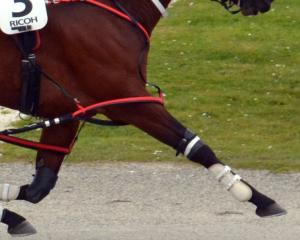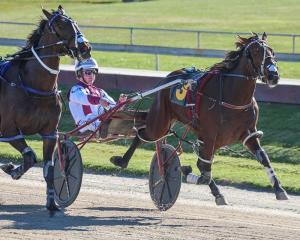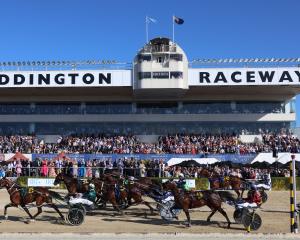The future of the Avondale Jockey Club looks to be very much up in the air, and will remain so even after last week's submissions into why the AJC should not be eventually absorbed or closed down.
New Zealand Thoroughbred Racing's chief executive Paul Bittar said on Friday the submissions had not been analysed, but he expected few surprises.
"The nature of these things is that when you call for submissions on such matters up to 90% of them will be against any move towards closure of the club.
"This won't be any different."
The future does not look bright for the once dominant AJC, which practically led New Zealand racing in innovative ideas through the 1970s.
The switch to night racing did not prove successful but, despite its contribution to the downturn, it was not, as many believe, totally responsible.
Bad management has contributed and the end was perhaps in sight when what was essentially a group of receivers, Dick Mc-Ellroy, the late John Wells and Thayne Green, moved in to claim the AJC from financial hell.
But the ensuing lack of financial maneuverability has seen the AJC slide further.
When tiered racing was enforced, Avondale not only had its dates reduced, but most of them today are "industry" meetings, designed to provide a product, but not profitability.
There appears to be no way out, although several interesting options were floated by those close to the club's management at its race meeting last week and were no doubt part of the NZTR submissions.
The boards of NZTR and the New Zealand Racing Board support the principle of only two racing clubs in the greater Auckland area, not three - Ellerslie, Avondale and Pukekohe - as there are at present.
"In the two forums we've had for the stakeholders we've explained that no decision has been made whether our recommendation is to close Avondale or Pukekohe, or perhaps [both] and look for a [new] greenfield site," Bittar said.
The Avondale club argues that if it had better dates it could pull itself up.
Bittar says there are problems there.
"When you get to where Avondale is financially, it becomes self-perpetuating.
"It's extremely difficult to give an underperforming club like Avondale a better raceday over a better performing club."
The crisis of this issue results from a more vigorous and controlled governance of the industry.
For decades, racing was managed by the old Racing Conference, which was exactly that - a conference of racing clubs.
Decisions at national level were made on the basis of what was good for individual clubs and favours for the clubs were enforced by the threat of lobbying for and against those who sought national office.
It was like the United States political scene.
The problem was everyone forgot about the only thing that really matters - the industry itself.
What is right for individual clubs is not necessarily right for the overall industry.
Rightly or wrongly, the two boards now consider only the industry.
Clubs are expendable.
They provide a venue for the product, not the product itself and if the decision is made that Avondale, or Pukekohe, must go for the better of everyone, then go they will.
But it will not be immediate.
"It needs to be on a five to six to seven-year time-frame," Bittar said.
At some stage, Ellerslie's course proper is going to need a major overhaul.
That will put it out of action for 12 months.
"That needs to start immediately after its derby meeting in March, with the course reopening perhaps a few weeks before the following derby.
"It would be overly optimistic to assume the job could start after the derby next year, so if that's the case it would need to be March the following year.
"It's very easy for two or three years to slip by in completing these things."
Bittar said work would then need to be done on the other venue decided upon to support Ellerslie in the Auckland area.
"If it was Pukekohe then there is major work to do there."
To some there is a simple solution - sell Avondale for, say, $60 million, invest that capital and race at Ellerslie.
That is not a popular view at the AJC, despite there being many highly successful examples of that approach.
Vice-president Ron Murphy said: "We've got an ageing and dwindling membership and the few occasions we've raced at Ellerslie in recent years we haven't been able to fill a minibus of members to go over to Ellerslie."
There does not appear a likelihood of softening the hardline approach.
"Let's say Avondale continues for five or six years; we can't afford for it to be an under-performing club for that period.
"We believe the club would perform better with a stronger management team in there and we'll be discussing that with them." - Mike Dillon









